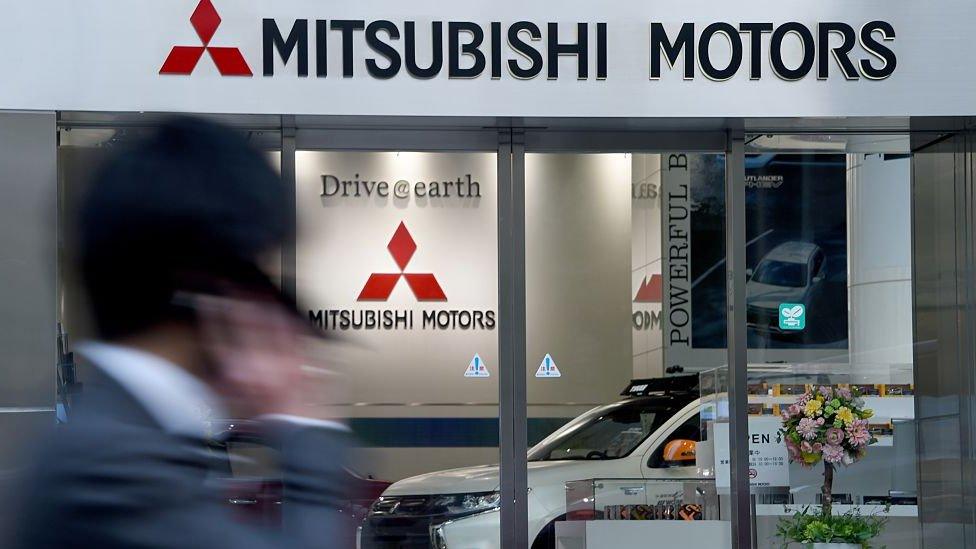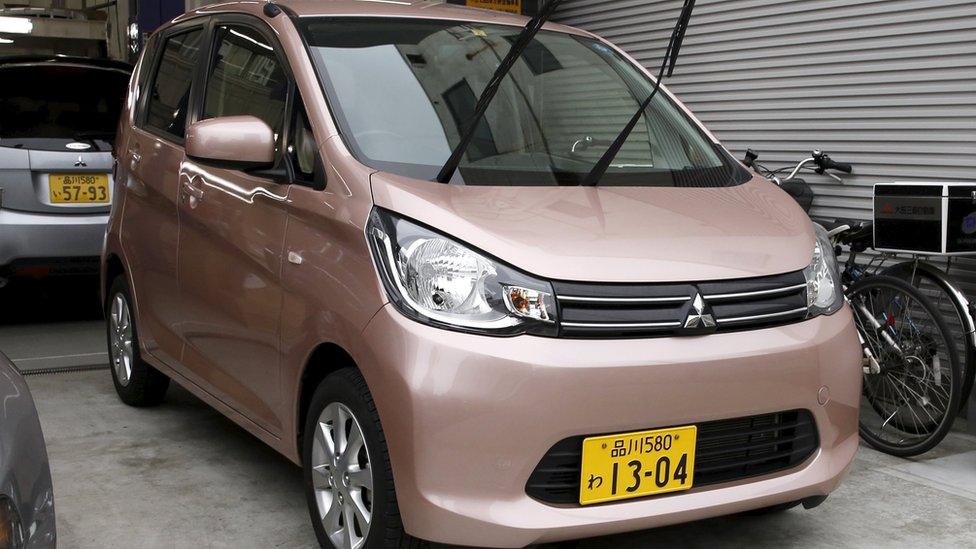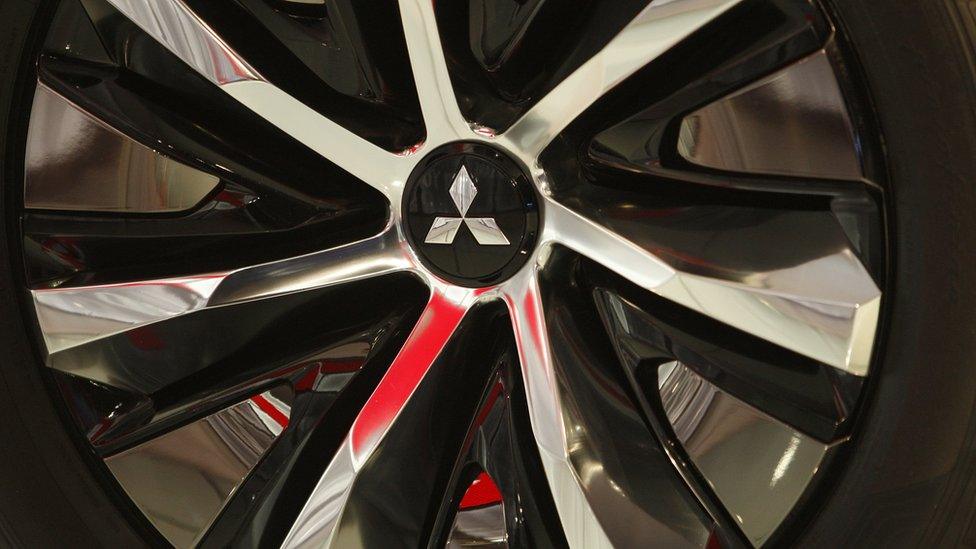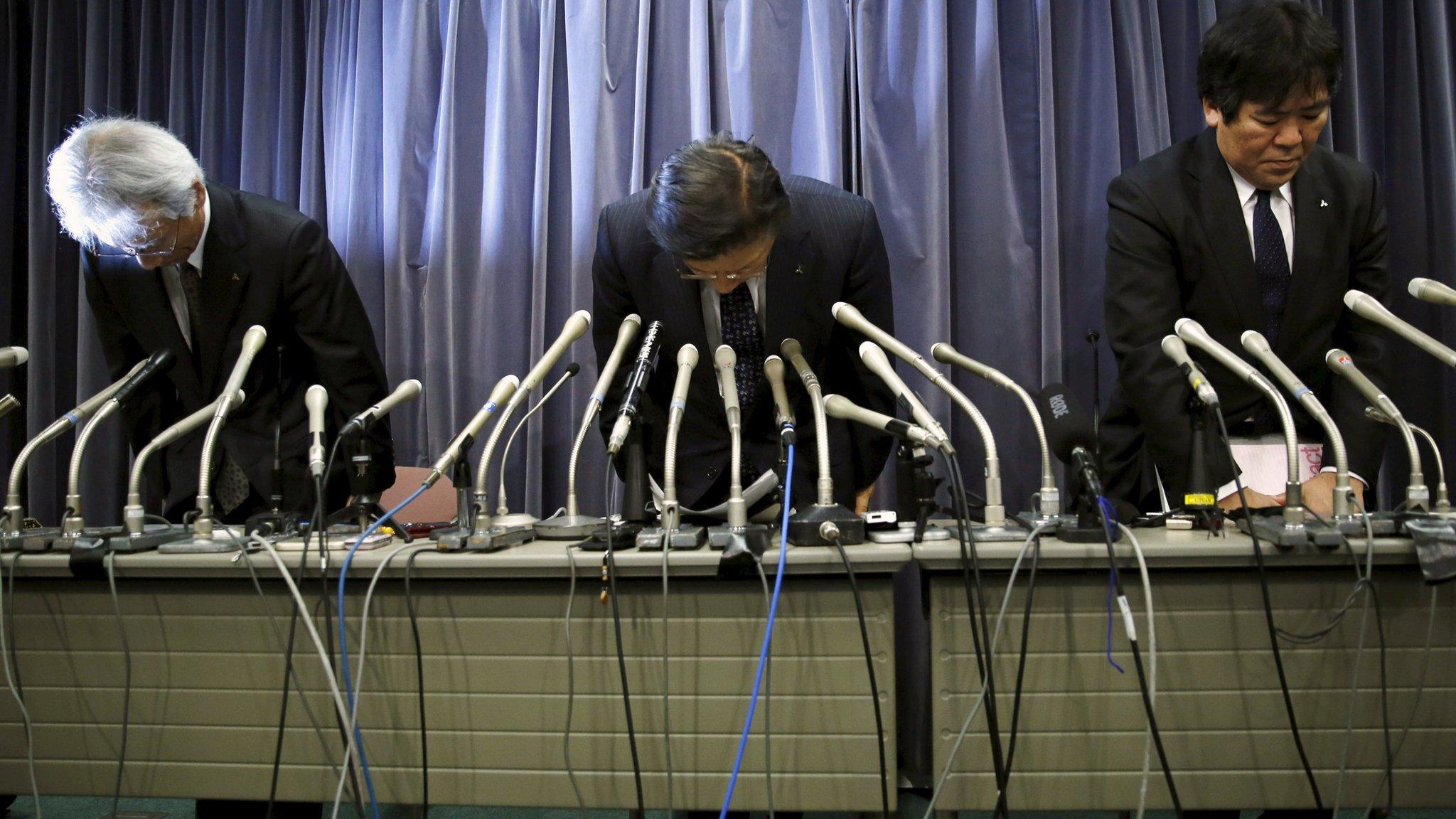Mitsubishi Motors admits using wrong tests since 1991
- Published

Mitsubishi Motors has said it has used fuel consumption tests that broke Japanese rules for the past 25 years.
The admission follows last week's revelation that it had falsified fuel economy data for four "minicar" models sold only in Japan.
Regulations changed in 1991 to better reflect stop-start urban driving, but Mitsubishi failed to heed the change.
"We should have switched, but it turns out we didn't," said Ryugo Nakao, executive vice-president.
That meant many more models than the four minicars may have used fuel tests that did not comply with the regulations.
Koji Yokomaku, another executive, said Mitsubishi had raised fuel economy targets five times in two years while developing the minicars, ending at 29.2 km (18.1 miles) a litre from an initial target of 26.4km a litre.
Tetsuro Aikawa, Mitsubishi Motors' president, said an inquiry led by three external lawyers had been opened: "We don't know the whole picture and we are in the process of trying to determine that. I feel a great responsibility."
Shares fell a further 10% in Tokyo on Tuesday, bringing the slide since the scandal erupted to almost 50%.
The inaccurate mileage tests revealed last week involved 157,000 of its eK wagon and eK Space, and 468,000 Dayz and Dayz Roox vehicles produced for Nissan. All were sold in Japan only.
The main attraction of the "minicars", which have tiny 600cc engines, is their frugal fuel consumption and their tax breaks.
Mileage fraud breaks Japan's fuel efficiency laws and possible penalties were unclear due to the uncertainties about the outcome of an investigation, the transport ministry said.
Mitsubishi has stopped making and selling all four models.

Mitsubishi's eK Wagon was one of the models affected
The company had repeatedly promised to come clean after a huge scandal 15 years ago that involved a systematic cover-up of vehicle defects.
That affair brought the carmaker close to collapse and it was bailed out by other companies in the Mitsubishi Group. Doing so again could prove more difficult, however.
Takehiko Kakiuchi, chief executive of Mitsubishi Corporation, said he was "aghast" at the scandal affecting its sister company.
- Published21 April 2016

- Published20 April 2016
- Published20 April 2016
